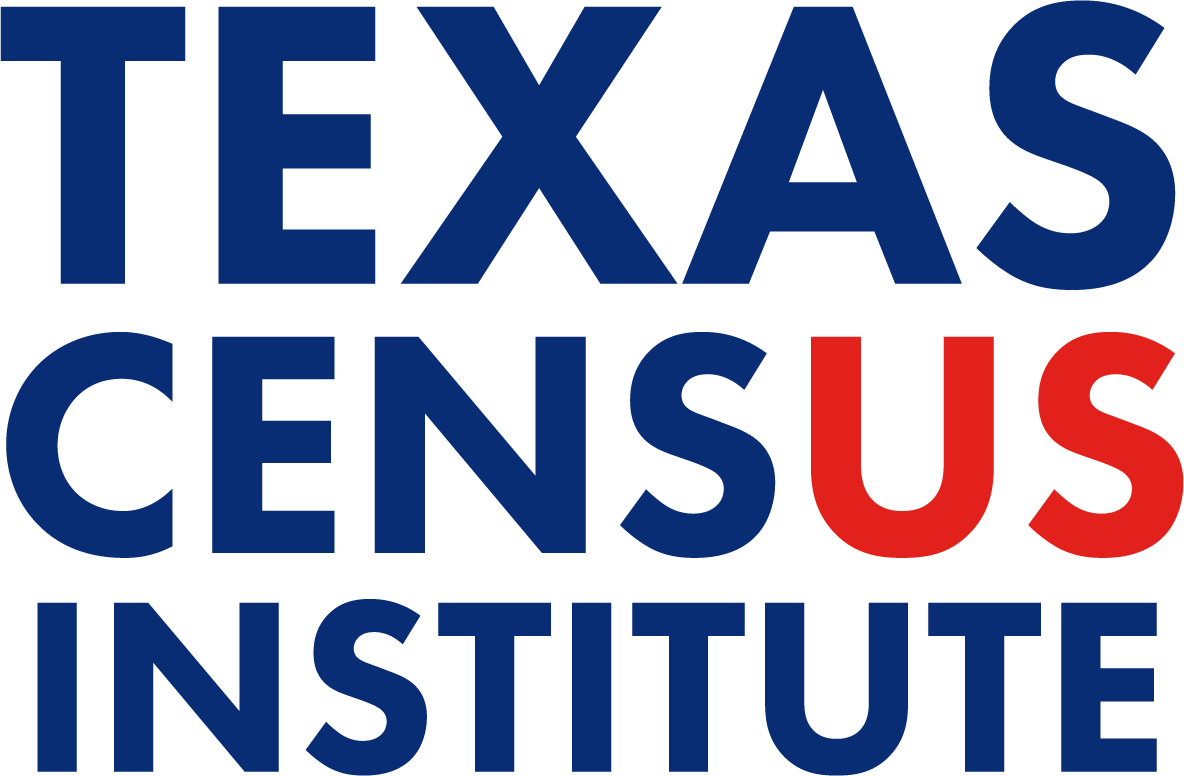BLOG | Census Guided Federal Funding | September 14, 2023
Announcing Updated Data Regarding Federal Funding to Texas

(Illustration: Renzo Velez / Project On Government Oversight, used with permission)
Introduction
On Monday September 11, the Project On Government Oversight (POGO) updated George Washington University’s Institute of Public Policy’s 2017 report, “Counting for Dollars 2020 Brief 7: Comprehensive Accounting of Census-Guided Federal Spending (FY 2017).” POGO’s 2023 report found 338 programs distributing just over $2.1 trillion in fiscal year 2020 to states and municipalities, demonstrating how tax dollars are allocated to programs that Americans utilize every day.
POGO and the Texas Census Institute (TxCI) are partners and the new report informs our three pronged strategy – research, education, and partnerships – to improve participation in the 2030 Census. We’re excited to share the update here and to include it as we develop a methodology to identify federal funds sourced (or missed) on a county-by-county basis.
Read the New Data from POGO: "Dollars and Demographics: How Census Data Shapes Federal Funding Distribution"
READ REPORTAccording to Sean Moulton, Senior Policy Analyst at POGO:
“The federal government relies heavily on the (census) data in several important ways. It allocates seats in the House of Representatives based on the decennial census results. It also uses the data to help direct trillions of dollars in federal assistance to states and communities. Those funds are used for hospitals, roads, schools, housing, supporting veterans, feeding children and families, economic development, and so much more. Agencies use census data for program evaluation and evidence-based policymaking. It is therefore essential to get accurate decennial census counts, yet numerous states had statistically significant errors in their 2020 decennial numbers…An inaccurate census count can send billions of dollars to the wrong locations.”
Why Accurate Counts Matter
Again, according to Mr. Moulton and POGO:
“Formula allocations will be far more sensitive to a miscount, especially if the miscount occurs in a population that’s the focus for a program. For example, Title I Grants to Local Education Agencies are determined by formulas that heavily use the number of school age children below the poverty level, so a miscount of children in low-income households would greatly sway the amount sent to a geographic area… These errors could lead to communities being denied their rightful portion of federal funding, thereby impeding their ability to address crucial needs and foster development.”
Census miscounts could lead to communities being denied their rightful portion of federal funding, thereby impeding their ability to address crucial needs and foster development.
Furthermore,
“There is a troubling overlap between the populations that the Census Bureau has found hard to accurately count and the groups that many of these programs seek to help…The link between census data and federal aid programs is more than just a matter of accuracy; it is also a matter of fairness and equity…federal assistance programs… are lifelines of support for communities that have historically been marginalized and are often most in need…States, counties, and cities with significant hard to count populations should work with the Census Bureau to intensify outreach efforts to these communities and ensure stronger participation in the census process.”
The New Data Set
POGO identified 338 federally funded programs that utilize census data in funding formulas, totaling $2.1 trillion, up from the 305 programs identified in the 2017 report, and broke out each program by state.
In 2020, Texas received over $150 billion in census-guided federal funds.
According to the updated report, Texas continues to hold its place high on the list of states with the greatest undercount and the most underserved or unserved people.
Instead of receiving its full share of federal dollars, the inaccurate census count in our state means Texas is foregoing billions of additional dollars in federal funds, funds that could have been used to add needed infrastructure for our power grid, hire rural teachers and air condition schools, or provide healthcare to struggling seniors.
A complete and accurate count of all its residents is absolutely essential if Texas is to access the funding it needs to maintain high quality public resources.
In order to remedy the inaccuracies of the 2020 count with an accurate count in 2030, TxCI is heeding POGO’s recommendation that states, counties and cities work together with the Census Bureau. We recently facilitated roundtable discussions in Austin and Houston, convened by the Annette Strauss Institute, Houston in Action, and the Houston Endowment, and featuring Robert Santos, Director of the US Census Bureau. We are working with the North Texas Commission, our DFW Regional Partner, to connect with and educate local municipalities, businesses and nonprofits. Soon, we’ll announce two more regional partnerships. These early steps matter. Dir. Santos himself recognized the importance of our collaborative efforts and identified TxCI as an essential resource for the state of Texas.
In an era where data play a pivotal role in decision-making and resource allocation, POGO’s new data sets fill important gaps in information regarding which programs are being funded in Texas and which ones are being left with shortfalls. In the coming months, TxCI will use this information to document missed opportunities at the local level, building a persuasive argument for census participation and further demonstrating the need to work together to secure an accurate count.
Starting now, doing the work of building a statewide collaborative supported by solid data, is core to the mission of the Texas Census Institute. Accurate census data equip policymakers, community-based organizations, and businesses to make informed decisions that shape our state’s future. These data are the foundation upon which we will build a better Texas for generations to come.
SIGN UP for our email updates and follow us on LinkedIn to be notified as our research is released or PARTNER WITH US to create a stronger, safer, and more prosperous Texas.









